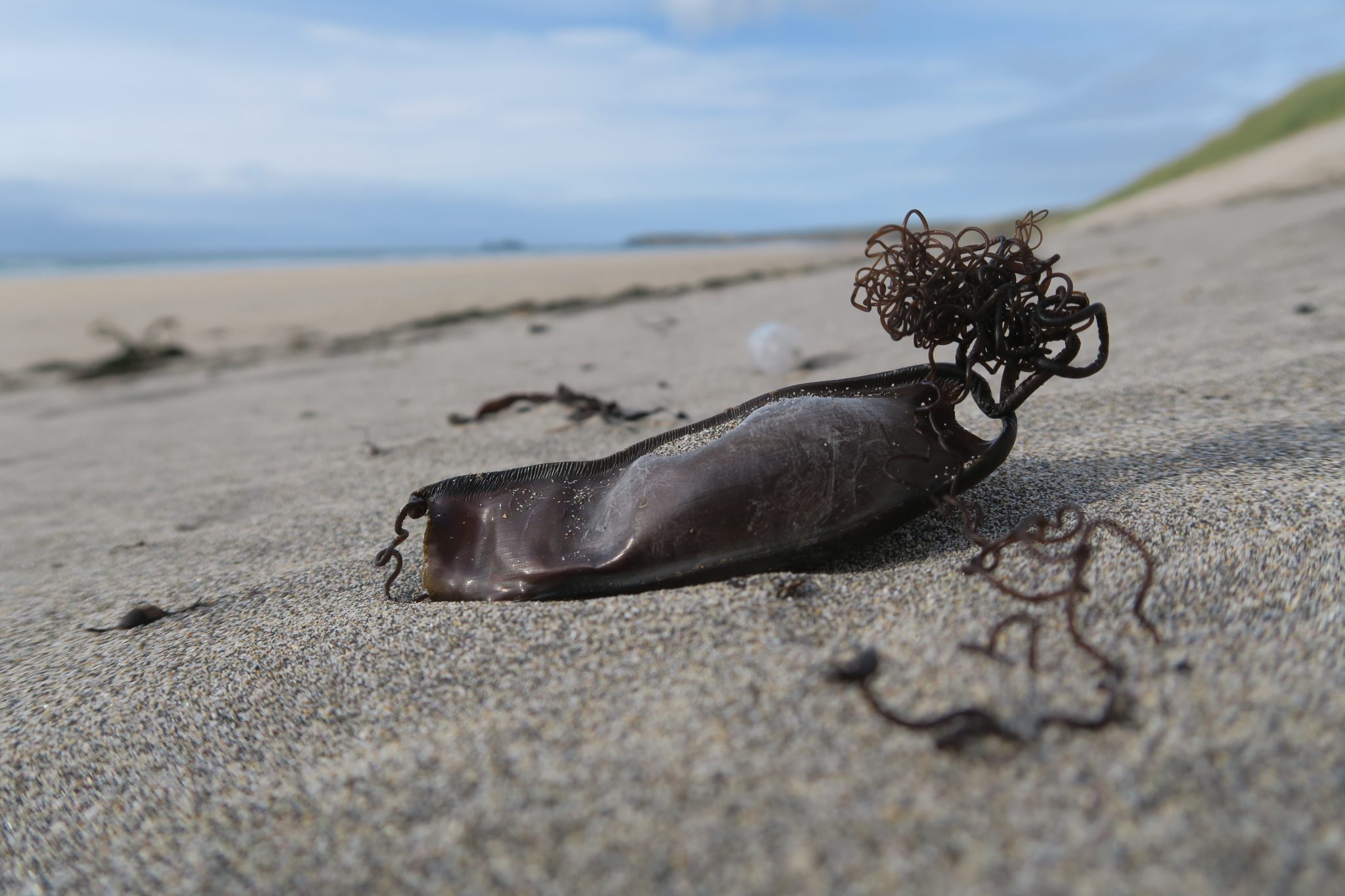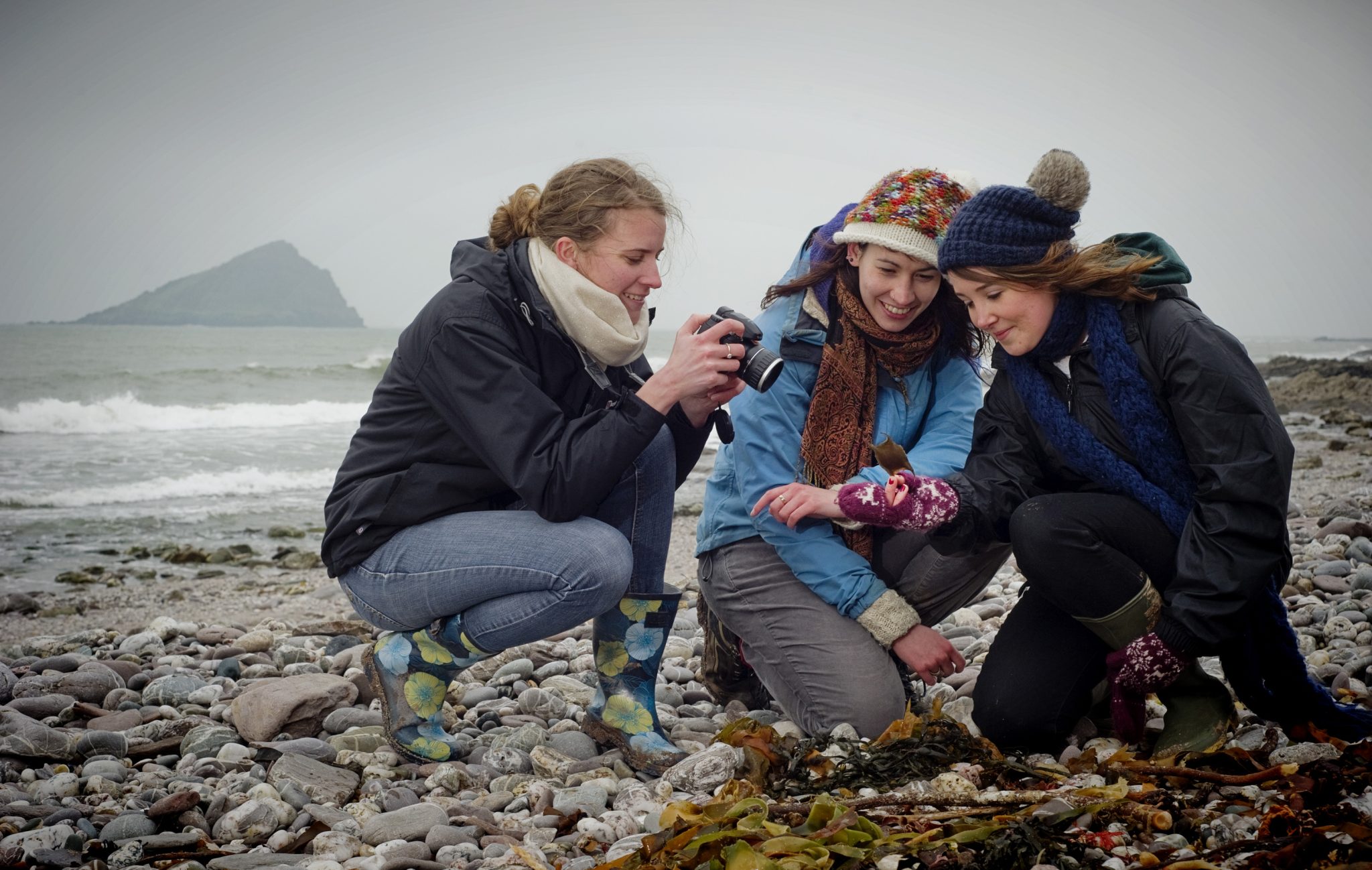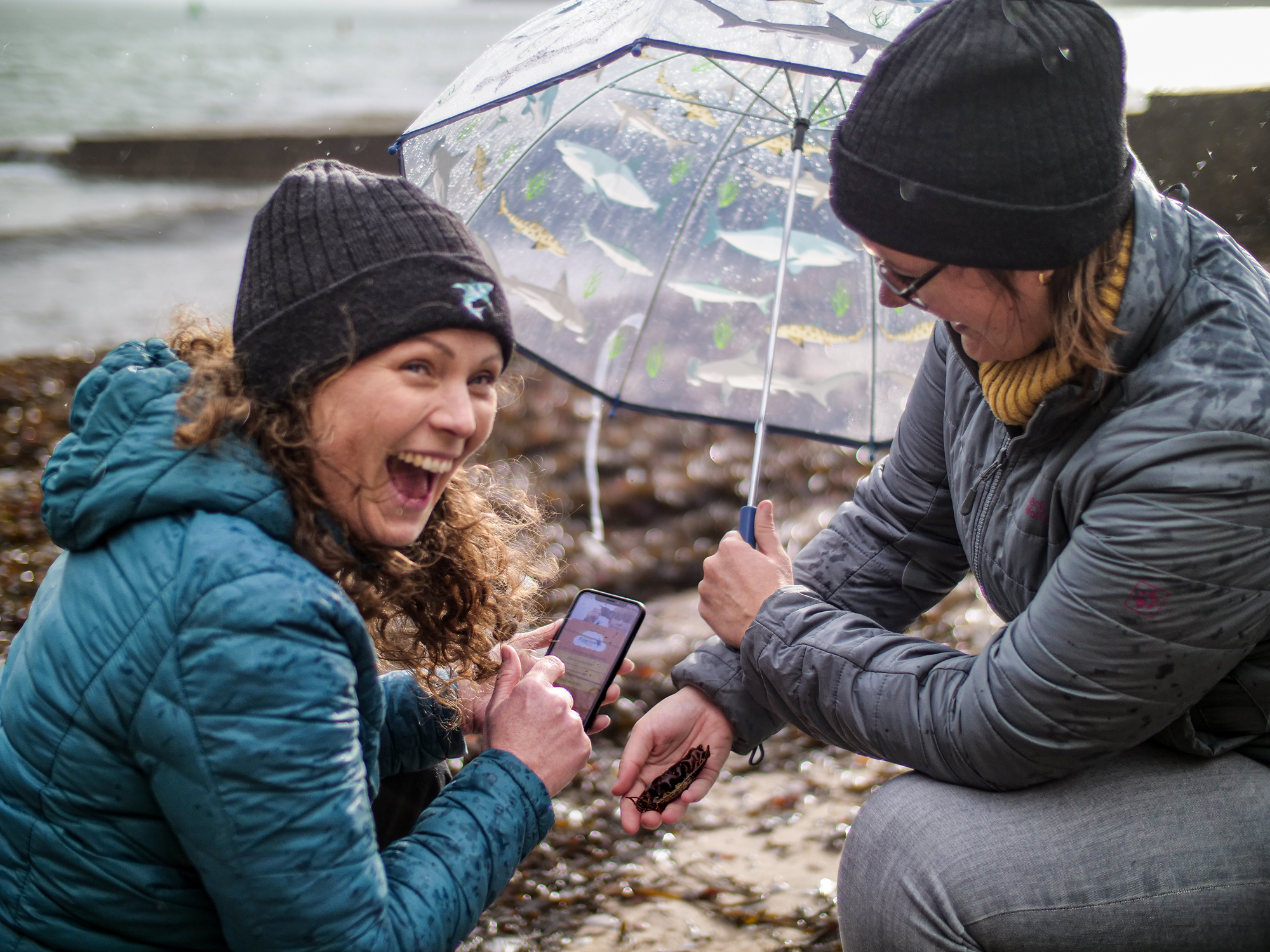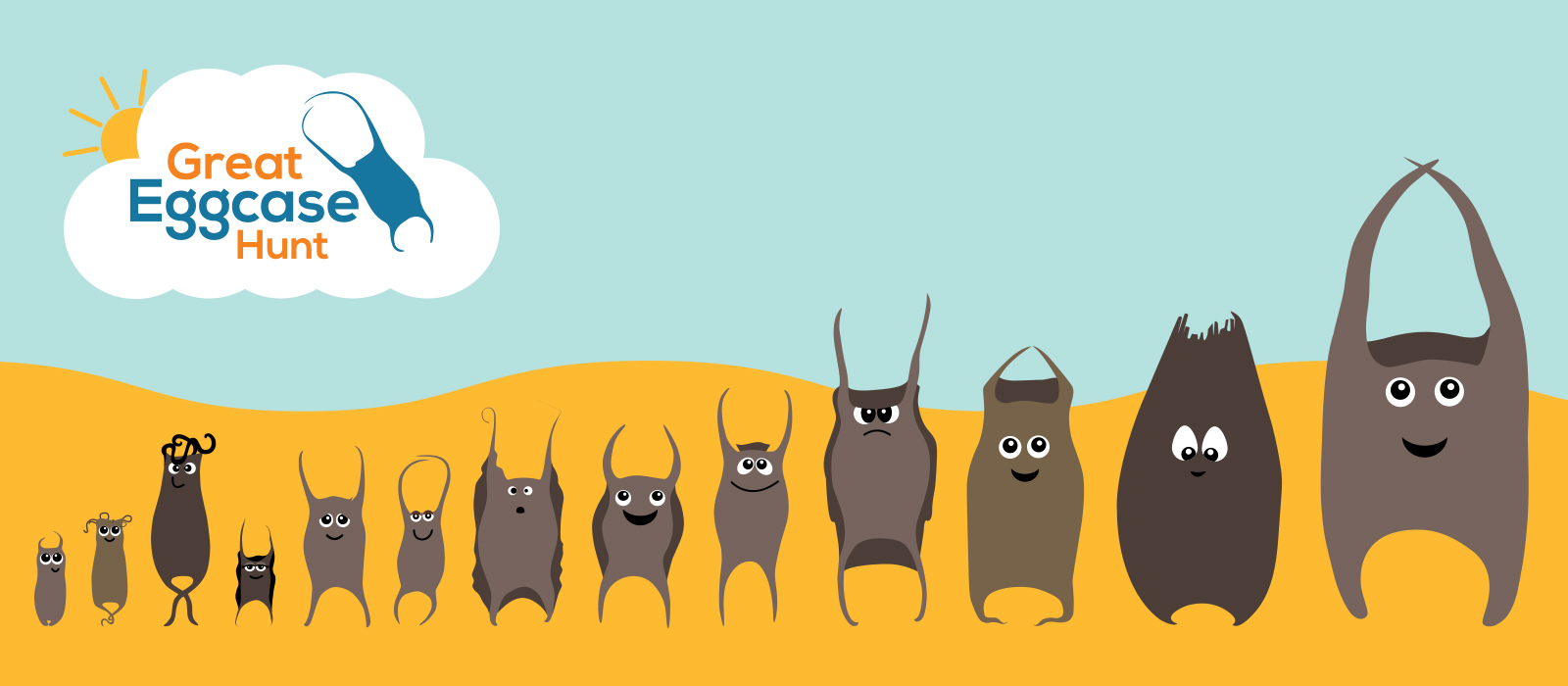Marine Life & Conservation
Divers ask to take part in Easter Egg Hunt with a twist!

 Stuck for ideas on what to do over the Easter Holidays? Want to get outside and do something fun to work off all that chocolate? Want to get closer to nature? The Shark Trust has an Easter Egg Hunt with a difference for you to try. Take part in the Great Eggcase Hunt and get involved with a big citizen science project that helps shark and skate conservation.
Stuck for ideas on what to do over the Easter Holidays? Want to get outside and do something fun to work off all that chocolate? Want to get closer to nature? The Shark Trust has an Easter Egg Hunt with a difference for you to try. Take part in the Great Eggcase Hunt and get involved with a big citizen science project that helps shark and skate conservation.
2023 marks the 20th anniversary since the Great Eggcase Hunt began. To celebrate this monumental milestone, the Shark Trust has launched a new app that features the Great Eggcase Hunt along with four other citizen science projects to take part in. Through these projects, anyone with an interest in sharks, skates and rays can contribute to valuable research by submitting your eggcase finds or shark sightings – while unlocking collectable shark cards as you build your logbook of finds.
Senior Conservation Officer Cat Gordon says “We’re really excited to be celebrating the Great Eggcase Hunt’s 20th anniversary this year! The project has evolved so much since it first began back in 2003. We’re now well on our way to receiving half a million eggcase records!”
New finds from around the world are regularly being added to an ever-growing database. The project now has an impressive 446,000 eggcases recorded from a total of 49 species documented from 30 countries.
Cat goes on to add “One eggcase find may not seem that significant on its own, but when all of this information is brought together it can help us better understand species presence and diversity. It’s also a great way to get involved in shark conservation, and of course, it’s fun – and not to mention competitive!”
Last year saw over 51,600 eggcases recorded in total, and 2023 has got off to a flying start with 22,400 eggcases already recorded since January! It looks set to be a bumper year. During last year’s two-week Easter holidays, we had 7,560 eggcases recorded – this Easter we’re on a mission to keep up momentum and beat the number of submissions! The Shark Trust are hoping that divers will increase the number of in-water sightings in the database this year too.
So, what actually is an eggcase? Some sharks, and all true skates, reproduce by laying eggs. These are surrounded by a tough leathery capsule that protects the embryo as it develops inside. Small slits in the eggcase allow fresh oxygenated seawater in, and let waste out, while a yolk sac provides plenty of nutrition. After several months (although this will vary depending on species) they are ready to hatch. The top of the eggcase will open and a fully formed shark or skate will emerge and be completely independent, having to fend for itself. Once empty, the eggcases (or mermaid’s purses) often wash up on the beach.
You don’t need to be part of an organised event to join in with an eggcase hunt (although check with your local marine centre or aquarium to see if there is one running near you!). All you need to do is head to your nearest beach, or go diving, and take a look around to see what you can find. The best places to search are in the strandline where seaweed and debris washes up, and in sand dunes at the back of the beach as they often get trapped in the grass. Underwater look closely in the seaweed.
The eggcases of different species vary. So, once you’ve found an eggcase, look at the size, shape, and features to identify which species it belongs to – we’ve developed identification resources to help you figure it out! Once you’ve got your answer, head over to the Shark Trust’s Recording Hub or use the new citizen science app to submit your finds.
The Shark Trust is continuing to add to the project’s resources by developing regional identification materials, collaborating with additional partners, and will soon be releasing a series of videos to help those who want to take part in the project and become Eggcase Champions – so watch this space for further developments.
Paul Cox, Shark Trust MD, said “The Great Eggcase Hunt makes for a fantastic family day out at the beach. Once you spot your first one, you’ll find it hard to stop! So get involved with shark conservation and have fun too!“
Find out more: https://www.sharktrust.org/great-eggcase-hunt
Marine Life & Conservation
Double Bubble for Basking Sharks

 The Shark Trust is excited to announce that, for two more days only, all donations, large or small, will be doubled in the Big Give Green Match Fund!
The Shark Trust is excited to announce that, for two more days only, all donations, large or small, will be doubled in the Big Give Green Match Fund!
Donate to Basking in Nature: Sighting Giants
The Shark Trust is hoping to raise £10k which will be doubled to £20k. This will go towards Basking in Nature: Sighting Giants. And they need YOUR help to reach they’re goal.
The Shark Trust’s citizen science project is to monitor and assess basking sharks through sightings; encouraging data collection, community engagement, and promoting nature accessibility. This initiative aims to enhance health and wellbeing by fostering a deeper connection with British Sharks.
Campaign Aims
- Increase citizen science reporting of Basking Sharks and other shark sightings to help inform shark and ray conservation.
- Provide educational talks about the diverse range of sharks and rays in British waters and accessible identification guides!
- Create engaging and fun information panels on how to ID the amazing sharks and rays we have on our doorstep! These can be used on coastal paths around the Southwest. With activities and information on how you can make a difference for sharks and rays!
- Promote mental wellbeing through increasing time in nature and discovering the wonders beneath the waves!
Donate, and double your impact. Click Here
Marine Life & Conservation
Leading UK-based shark conservation charity, the Shark Trust, is delighted to announce tour operator Diverse Travel as a Corporate Patron

 Corporate Patrons provide a valuable boost to the work of The Shark Trust. The Trust team works globally to safeguard the future of sharks, and their close cousins, the skates and rays, engaging with a global network of scientists, policymakers, conservation professionals, businesses and supporters to further shark conservation.
Corporate Patrons provide a valuable boost to the work of The Shark Trust. The Trust team works globally to safeguard the future of sharks, and their close cousins, the skates and rays, engaging with a global network of scientists, policymakers, conservation professionals, businesses and supporters to further shark conservation.
Specialist tour operator Diverse Travel has operated since 2014 and is committed to offering its guests high quality, sustainable scuba diving holidays worldwide. Working together with the Shark Trust will enable both organisations to widen engagement and encourage divers and snorkellers to actively get involved in shark conservation.
“Sharks are truly at the heart of every diver and at Diverse Travel, we absolutely share that passion. There is nothing like seeing a shark in the wild – it’s a moment that stays with you forever!” says Holly Bredin, Sales & Marketing Manager, Diverse Travel.
“We’re delighted to celebrate our 10th year of business by becoming a Corporate Patron of the Shark Trust. This is an exciting partnership for Diverse and our guests. We will be donating on behalf of every person who books a holiday with us to contribute towards their vital shark conservation initiatives around the world. We will also be working together with the Trust to inspire divers, snorkellers and other travellers to take an active role – at home and abroad – in citizen science projects and other activities.”
Paul Cox, CEO of The Shark Trust, said:
“It’s an exciting partnership and we’re thrilled to be working with Diverse Travel to enable more divers and travellers to get involved with sharks and shark conservation. Sharks face considerable conservation challenges but, through collaboration and collective action, we can secure a brighter future for sharks and their ocean home. This new partnership takes us one more valuable step towards that goal.”
For more information about the Shark Trust visit their website here.
For more about Diverse Travel click here.
-

 News3 months ago
News3 months agoHone your underwater photography skills with Alphamarine Photography at Red Sea Diving Safari in March
-

 News3 months ago
News3 months agoCapturing Critters in Lembeh Underwater Photography Workshop 2024: Event Roundup
-

 Marine Life & Conservation Blogs3 months ago
Marine Life & Conservation Blogs3 months agoCreature Feature: Swell Sharks
-

 Blogs2 months ago
Blogs2 months agoMurex Resorts: Passport to Paradise!
-

 Blogs2 months ago
Blogs2 months agoDiver Discovering Whale Skeletons Beneath Ice Judged World’s Best Underwater Photograph
-

 Gear Reviews2 weeks ago
Gear Reviews2 weeks agoGEAR REVIEW – Revolutionising Diving Comfort: The Sharkskin T2 Chillproof Suit
-

 Marine Life & Conservation2 months ago
Marine Life & Conservation2 months agoSave the Manatee Club launches brand new webcams at Silver Springs State Park, Florida
-

 Gear Reviews3 months ago
Gear Reviews3 months agoGear Review: Oceanic+ Dive Housing for iPhone





















